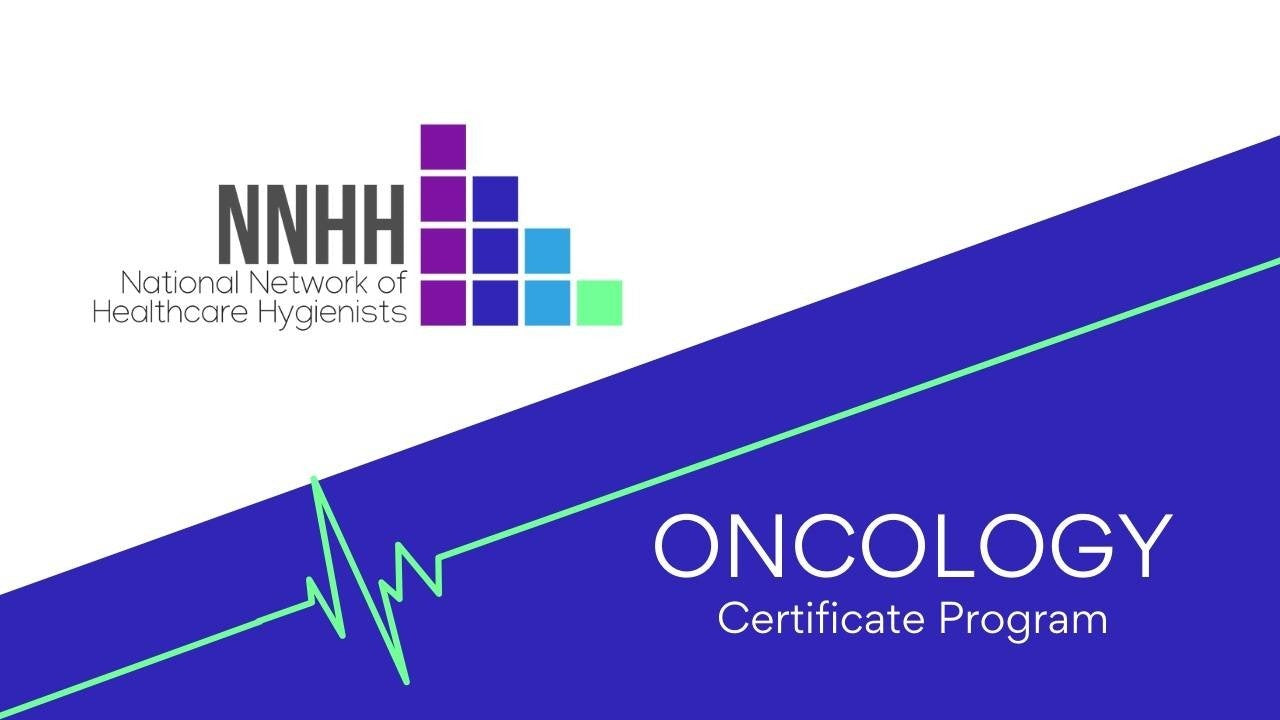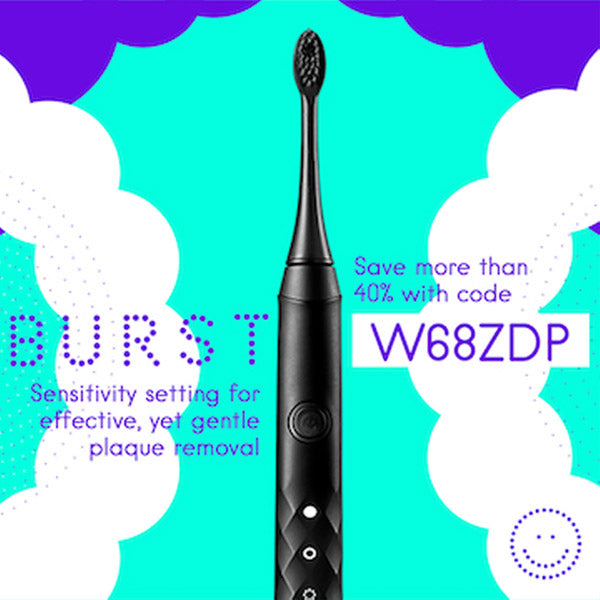Meeting the Needs of RDHs who Desire Expansion into Oncology Settings

A special Thank You to Dr. Megan Reutter for sharing the following information about the National Network of Healthcare Hygienists' Oncology Certificate Program!

Despite a high incidence of oral complications, most oncology patients are not educated on the importance of oral health throughout the course of their cancer treatment and are often left on their own to search for solutions once a complication arises. Oral complications are common secondary infections of cancer treatment. Approximately 40% of patients develop some form of oral mucositis. This percentage rises to 60-85% for patients undergoing hematopoietic stem cell transplantation and to almost 90% for head and neck patients treated with radiation plus chemotherapy (Elad et al., 2021), which significantly affects the patients’ quality of life, increases their financial burden, and can delay cancer treatment.
Oral mucositis costs can range from $5,000-$30,000 among patients receiving radiation therapy and roughly $3,700 per cycle among patients receiving chemotherapy (Elad et al., 2021). Oral mucositis is not the only complication patients experience in their oral cavity. Other complications include dry mouth, taste changes, osteonecrosis and osteoradionecrosis, acute periodontal infections, and other opportunistic infections, such as fungal, viral, and candida infections. The consequences of these complications can persist long after the completion of cancer treatment.
Further research demonstrates the benefits of prophylactic professional oral health care (POHC) performed by dentists and dental hygienists reduce chemotherapy-induced oral mucositis in cancer patients (Saito et al., 2014); however, few cancer treatment centers have an oral health professional on site to deliver POHC. Oral health integration is part of each hospital's strategic plan, but not all necessarily understand how to integrate this new model of care. Too frequently, patients are recommended to seek out dental care on their own without consideration of practical barriers, including transportation, proximity of a dental office, and the ability to receive timely care, as it often takes weeks to schedule a dental appointment, complicating cancer treatment (Furlow, 2016). Partnered with the fact that there was no formal training available for dental hygienists to specialize in oncology and serve as an oral health champion on multidisciplinary oncology teams, oral care is consequently overlooked. This is where the National Network of Healthcare Hygienists (NNHH) comes in to assist healthcare organizations and hygienists bridge the gap for better integration, advance dental hygiene careers, and improve patient outcomes. NNHH created an oncology certificate for dental hygienists to learn about the specific needs of these patients and how to implement a dental hygienist into an oncology setting. The oncology certificate is the first specialty program NNHH offers in addition to the foundational Oral Systemic Educator Certificate Program.
Upon completion of NNHH’s self-paced oncology program, students feel prepared to advocate for oncology patients’ oral health needs as well as prevent and treat oral side effects with evidence-based research, products, and technology. The curriculum also includes the “Cotton Method,” a thorough head, neck, oral, and oropharyngeal cancer screening. The curriculum is set up to understand the oncology patient’s journey, starting with the biology of cancer, to oral side effects during cancer therapy, to residual oral side effects patients may experience into survivorship. Students also gain confidence in educating multidisciplinary oncology teams on the importance of establishing an oral health assessment, prevention, referral, and treatment protocol. A capstone project is required to receive the certificate and serves as a springboard to approach a local oncology treatment center to apply the knowledge and skills learned during the program to create a position on an integrated care team. A common theme you will find among current students enrolled and instructors is their passion to improve patient outcomes and their quality of life as they navigate cancer therapies and move into survivorship.
Recent surveys showed that students complete the program for a variety of reasons, including clinical hygienists looking to expand their knowledge to educate colleagues and patients to those who are currently working in oncology and want to feel prepared for their role on interdisciplinary teams. It takes a team to treat one cancer patient and the trajectory of healthcare is rapidly changing. Hospitals must consider establishing comprehensive medical teams by including dental professionals to reduce the individual burden on physicians and nurses and enable the delivery of safer, high quality medical care. As dental hygienists, it is up to us to ensure our profession is prepared to meet the needs of a demanding healthcare system. To learn more about NNHH’s online certificate programs, and expand your role as a dental hygienist, go to https://www.healthcarehygienists.org/oncology-certificate-program

Dr. Megan Reutter, RDH, DHSc is a dental hygienist and has worked in a variety of settings, including clinical practice, education, and public health. She received her undergraduate degree at Eastern Illinois University in Community Health, her master’s degree from University of Bridgeport in Dental Hygiene Education, and her doctorate degree at A.T. Still University. Her doctorate degree is in Health Sciences with a concentration in Leadership and Organizational Behavior. Dr. Reutter’s research interests include interprofessional collaboration, the oral-systemic link, and leadership. She has presented her research and leadership courses for healthcare professionals. Dr. Reutter assisted the National Network of Healthcare Hygienists (NNHH) with curriculum development for dental hygienists to specialize in oncology and serve as a member of the multidisciplinary team. Megan also serves as a board member for NNHH and the Illinois IFLOSS Coalition. She is passionate about medical-dental integration and serving as an oral health advocate.
Dr. Reutter holds a joint appointment at Campbell University in the Doctor of Health Sciences program and at University of Illinois in the Health Sciences program.




